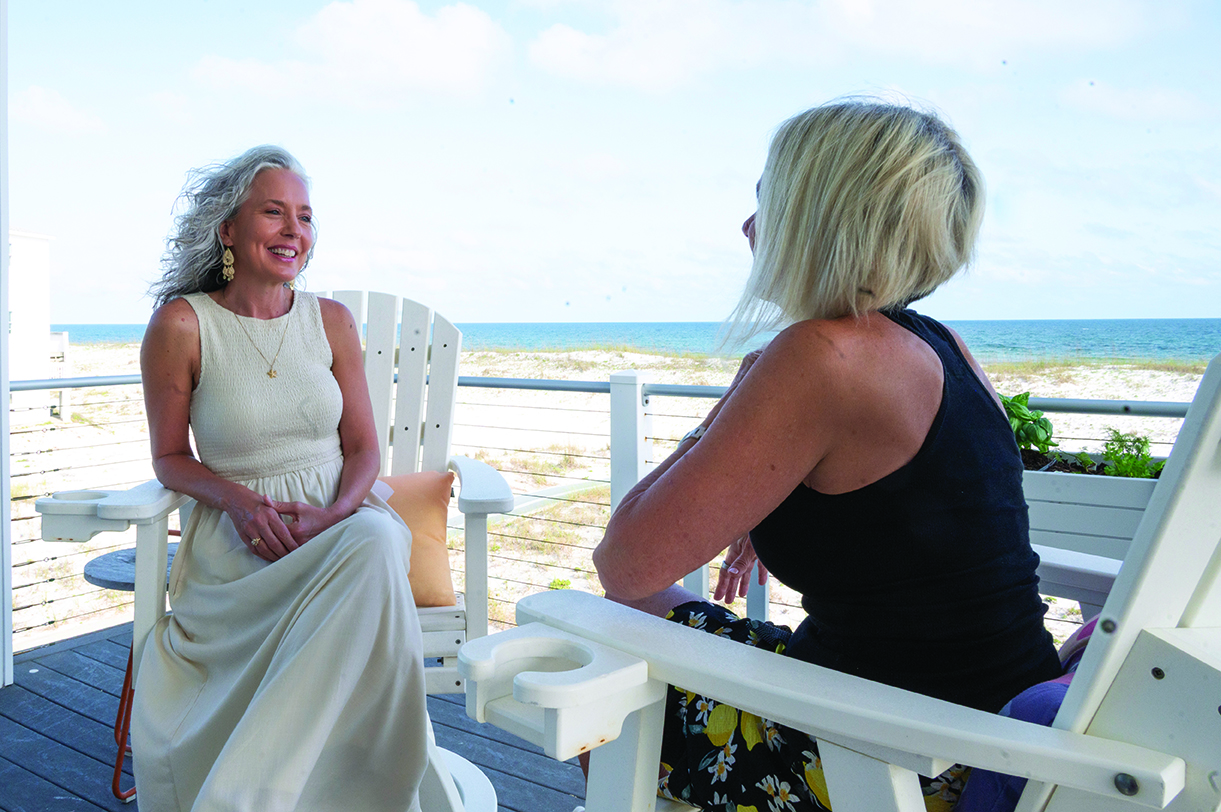Melody Kohr: Finding (and being) the light for FamiliesFirst Network
By Sharla Gorder / Photos by Kate Treick Photography

Melody Kohr has a motto. It’s as simple as it is profound.
“Every day has a purpose,” she says.
And she should know; Kohr has had more than 8,000 of those purposeful days. After nearly 23 years working her “dream job,” her enthusiasm hasn’t waned. If anything, Kohr is more passionate than ever about the work she does.
Kohr is the Young Adult Service Unit manager in the FamiliesFirst Network of the Department of Child and Family Services. She and her team help teens who have aged out of the foster care system.
In the U.S. each year, more than 20,000 young people turn 18 in foster care and are faced with an uncertain future. If they are not adopted, assigned a legal guardian, or reunited with their birth families, they are, in essence, suddenly on their own at the turn of a calendar page.
That’s where Kohr and her team come in.
“At the heart of our agency’s mission is a deep commitment to empowering youth as they transition into adulthood. We walk alongside young adults on their journey to independence.”

Many of these teens face staggering challenges. Some have been bounced in and out of as many as two dozen homes and facilities in their young lives. Many have strayed into the juvenile justice system. And nearly all of them have faced significant trauma and marginalization.
“It’s a tough transition for them,” Kohr said. “Normal brain development isn’t complete for most adults until the early- to mid-20s. Childhood trauma can further delay the process, affecting executive function, emotional regulation and decision-making skills. At 18, they still have a long way to go. Our goal is to bridge the gap — to help them understand the importance of continued education, meaningful employment, secure and safe housing, and building their future.”
To that end, Kohr and her team provide services, oversight and mentorship to these young people, starting with their most basic need: housing.
It is estimated that as many as 36% of teens aging out of foster care become homeless during the transition to adulthood. Kohr’s team and community partners work to keep them safely housed so that they can focus on other foundational aspects of the program: education and employment.
Young people in foster care have often faced disruptions in their education caused by frequent moves. Many, at 18, still have not graduated from high school. Others, who have gotten their diploma, have no means to continue their education or acquire job skills.
The Young Adult Service program offers educational opportunities (tutoring, tuition, even college tours) and job-skills training to participants.
The goal is to enable these kids to become stable, productive members of our community.
Hundreds of young adults have come through the program since Kohr began working for FamiliesFirst Network in 2002. Many of them thrive. Some do not.
“One has become an actual rocket scientist at NASA. Another is serving a life sentence in prison,” she said.
Kohr learned early on that you can’t take the tragic cases personally, nor can you rest on your laurels with the success stories. There is too much work to be done.
“The job can be stressful,” she admitted. “We deal with so much in a given day, and not just the kids. We are also in constant contact with the courts, attorneys, various social service agencies, community volunteers and advocates … you name it.”
It’s a lot, and Kohr learned early on that she would have to prioritize self-care to prevent burnout.
“I spend as much time as I can outdoors. I have to be able to move and go, and I encourage my team to do the same. We often take our lunch or meetings while walking together. Today, my supervisor and I walked the whole Lakeview campus, more than two miles, brainstorming and just talking.”
Kohr has also learned to leave work at work when she clocks out. Her greatest sources of joy are her close relationships, especially her two boys, 17 and 19. She also hits the weight room at the gym, but again, prefers being outdoors — running, playing basketball, working in her yard, and shore fishing with her boyfriend.
“The beach is my happy place. I might be solar-powered,” she joked. “I get out there as often as possible.”
Balance is key, especially in a job as stressful as Kohr’s. Seemingly small wins at this pivotal juncture in a teen’s life can begin to set the stage for a life well-lived.
“One of the best feelings for me is when a youth who has been academically behind due to childhood circumstances achieves their high school diploma,” she said.
“It isn’t glamorous work,” she acknowledged, “but it is so rewarding. Every day has a purpose, and this is mine.”
Want to help?
Here are some ways to contribute to FamiliesFirst Network’s mission.
DONATION OF GOODS
Toiletries (toothbrushes and toothpaste, feminine hygiene products, razors, shampoo and conditioner)
Household supplies (toilet tissue, paper towels, laundry detergent, cleaning supplies)
Infant care supplies (diaper bags, diapers, wipes, bottles)
Non-perishable food items (canned goods, dried goods, ready-to-eat meals such as Lean Cuisines)
Big items (bicycles, computers)
DONATION OF PROFESSIONAL SERVICES AND OPPORTUNITIES:
Tutoring (especially for GED)
Job opportunities
Apprenticeship programs
Dental work (specifically braces)
Haircuts (for job interviews)
Photography (for events like graduation)
Technology support (computer skills)
If you’d like to get involved with donations of time, resources, services or money, contact Melody Kohr at 850-776-2718.







